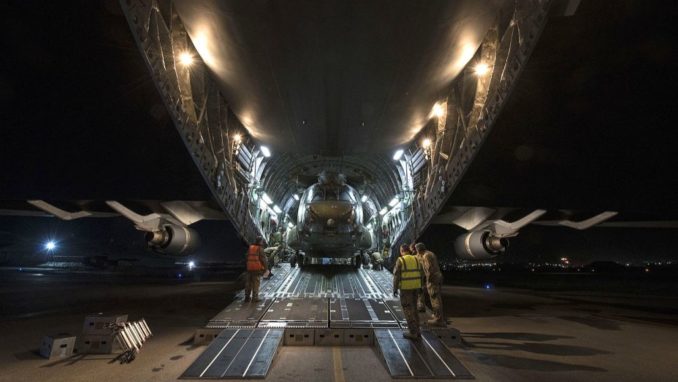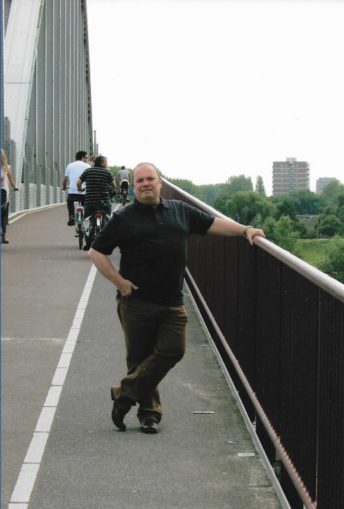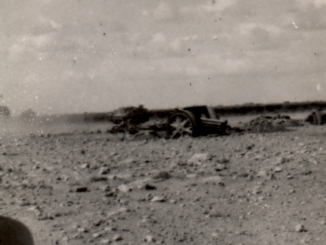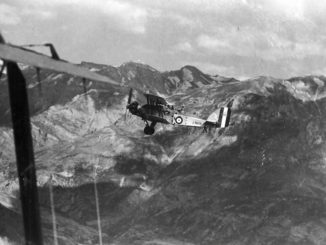
Thursday 5th February
The son who had been born in a clinic in the Camargue while lizards crawled up the walls of the delivery room, looked down at the dying man in the bed. Cancer had eaten out the old man’s vitality and he was staring at a skin covered skull. He had a small dribble running down his chin consisting of mucus and blood.
How long had that been there?
This bag of bones had once lain prone in the nose of a Lancaster and stared focused and fixated at Bavaria 14,000 feet below. Then he had been a vital young man, watching the Berghof crawling towards the tip of the dagger of the Mk XIV bomb sight, ready to release a load of a 4,000lb cookie and six 1,000lb high-capacity bombs on Hitler’s Bavarian residence. Now he was a bed-blocker. An inconvenience.
The frail skeleton opened its eyes and looked up at his son. The eyes focused slowly and then there was a lopsided smile. His father’s face had been lopsided since they had dug out the tumour and metastases from his jaw and neck, two years previously.
“How went the day?” his father asked.
How went the day? What sort of stupid way is that to ask me how you wife’s and my mother’s funeral and cremation went?
“It was a good send-off. They were all there. The Aircrew Association, lots of your and mum’s friends I’ve never met. The priest was OK, for a rabbit caught in the headlights. I bet he doesn’t have to do requiem masses for his normal punters.”
They both chuckled but his father started coughing. He composed himself and pointed to the bed next door, around which the screens were drawn.
“Grab that chair. He won’t be needing it.”
“Why?”
“Because I reckon he died forty-five minutes ago.”
Forty-five minutes. Still so precise. So why can’t you remember my name half of the time, Dad?
“Should I tell someone?”
“You tell me. You’re the medic. I pressed the buzzer, but…” He shrugged.
“Dad, this is so… So bloody…”
“You’re looking better,” his father said, cutting off any mawkishness, “You were drinking too much. You look uncomfortable because you’re not used to wearing your Best Blues. We used to live in ours.”
He had felt uncomfortable as a schoolkid having older parents, but now in middle age himself, he wouldn’t have had it any other way. Older parents had provided calmness and stability while his brother had suffered the stress of being the first born, with the family expectations laid upon him. As the younger brother he had cruised through life, without the opportunities but also without their having expected so much of him. Ironically, while his elder brother had hated his short military career, the younger brother had made it his life from the age of sixteen.
“That’s perhaps because you didn’t have to spend nearly five-hundred quid on yours, to wear once a year if you’re lucky. What are we going to do with you, Dad? Who’s going to look after you?”
”God will look after me. And you’re going back out there to do your duty. That’s what you’re paid for.”
“Bloody hell, Dad. I feel so bad about squandering the taxpayers’ money. “
Duty. Service. His father would probably have believed in the Military Covenant, if he and the politicians had known what it meant. He wondered what the Service personnel being prosecuted for historic war crimes, thought about the mythical Military Covenant.
“Nevertheless, you’ve done everything you can here. It’s time to go back. Thank you for coming and thanks for everything you and Rhona managed to organise. Especially the priest and your Mum’s funeral.”
“I thought she got on your nerves, Dad.”
His father chuckled, “Only sometimes. Well, most of the time. But she’s a brick and I’m grateful. It would be nice if she could come and visit a last time, once you’ve gone back. Do you know, I’d love a Fry’s Chocolate Crème?”
He leaned forward and self-consciously embraced his father. There was nothing left of him. He wiped the dribble of bloody mucus off the old man’s chin.
“Goodbye, Dad.”
“Take care and watch out for the treacherous bastards.”
He stood up.
“Do they still have purple wrappers?”
“What?”
“Fry’s Chocolate Crèmes.”
“No, Dad. They’re in rainbow wrappers now. For the LBGT community.”
“Is that a car club?” his father asked.
His father gave him his final instructions. They were typically blunt and unequivocal. As he walked out of the ward, a gaggle of nurses was ensconced at the nurses’ station. He could have sworn that one of them giggled as he clip-clopped past in his best shoes. He paused and swivelled round, the steel heel of his right shoe gouging the floor. He advanced slowly on the nurses’ station. They stared at the caduceus on his lapels and the row of medal ribbons.
“Good afternoon, ladies, oh and gentleman. You might possibly be interested to know that one of your patients is dead. My father did try to tell someone by pressing his buzzer. But you were all too busy, polishing these work surfaces with your arses.”
As he stalked out, the initial rush of righteous euphoria subsided, and he realised that it had just been a cheap shot. He was in the same business as them and the nature of his work was much less complicated. He didn’t have to balance unrealistic expectations with Kafkaesque directives and a case of demand outstripping supply, or the ability to pay for it. He felt guilty for many reasons. Squadron Leader Margin would never see his father again.
Tuesday 10th February
Margin realised that he had been re-reading the same paragraph of Wilbur Smith’s The Triumph of the Sun and he tossed the book onto the empty seat next to him. He removed his glasses and massaged his tired eyes with index finger and thumb. It had been two days since he had slept properly, and he leaned back and closed his eyes.
Rhona had got up with him at 03:30 and they waited awkwardly for the MT car to turn up and take him to Brize Norton. The hospital had phoned the night before to tell him his father had died. His mother and father were reunited. The duty clerk had told him that under the circumstances he was insane to go back. He couldn’t exactly tell the clerk that his father had instructed that he was to bugger off and let him die.
“I’m so sorry that you have to deal with everything while I’m back there. I think I should stay.”
His wife had looked at him. She had a slight frown, so perhaps she felt tired as well.
“What did he say to you, I mean what was the last thing he said to you?” she asked.
“He told me to bugger off. That it was his time. What about you?”
“He told me to make sure you went back. That there was nothing to be achieved by your hanging around.”
The car arrived and the driver saw the lights on in the kitchen and waited patiently.
“Send me an e-mail as soon as you can log on. Phone when you can and keep writing. The bluies are special to me.”
“Will do.”
“And no stupidity. No jollies. Head down. Be boring and come home.”
The departure lounge at Brize Norton had thinned out considerably since the Compulsory Drug Testing (CDT) team had herded most of the troops off to have the piss taken. Talk about a captive audience. Margin thought it was a pretty shabby stunt to spring on young lads who were going back out to theatre after their short R&R. Outside it was still dark through the plate glass windows, but he could see that the fog was clearing. A truck sped past on the pan, yellow light burling above the cab. The nose and engine nacelles of a C17 loomed out of the murk, like some gigantic, grey whale. Hopefully, soon they would be embarking.
Margin was glad it was a C17. The huge transporter had no pretensions about being a passenger jet and despite its Spartan and cavernous interior, the sideways facing seats were more comfortable. The aircraft also had a better Defensive Aid Suite (DAS). The rear ramp and doors were facing away from terminal building, but when he walked up to the windows, he could see the movers loading on cargo with the vehicle lifters. There was only about sixty Pax, so there would be plenty of room in the C17 for cargo.
Margin turned away from the bleak and cold pan outside the windows. He glanced at the four men in heterogeneous combat clothing, keeping themselves to themselves, tucked in the corner of the terminal and surrounded by piles of kit. Unlike the rest of the Pax, these four had their weapons with them in canvas weapon bags, not thrown onto the aircraft by the movers. Two of them looked like extras from a spaghetti western, one was outrageously ginger and the last one looked like a merchant banker, dressed for an afternoon’s team building with a spot of paintballing. Margin concluded this man was outrageously handsome and suddenly felt worried about his sexuality. Should he have had an opinion on that? They had obviously been spared the ignominy of a compulsory drugs test, like him but for different reasons. He was an RAF officer and therefore not worth bothering with and he wasn’t on their list anyway. These four would have shown the CDT what they could do with their specimen jar. He sat down and resumed Wilbur Smith’s rather sadistic novel set during the fall of Khartoum.
Two chapters later the public address announced that they would shortly they would be boarding the aircraft. There was a chorus of sarcastic cheers and exclamations. About time. Fucking Crabs, etc., etc. The Army lads gathered their kit and headed for the doors. Margin knew what “shortly” meant in mover-speak. He headed out of the doors into the baggage handling area, which had been designated as the smoking area, complete with sand-filled buckets practically overflowing with fag ends. He lit one of Messrs’ Benson and Hedges finest, sorry Rhona, and saw he was not alone.
One of the cast of the Good, the Bad and the Ugly was power-tabbing, sitting on a baggage carousel. He seemed lost in thought, staring down at his abraded boots, Haix, Margin judged. Behind the stubbly beard and moustache, the face was grim and had an asymmetric quality. He looked like he carried the weight of the world on his shoulders. Margin dropped the half-smoked cigarette in a sand bucket and pulled open the door, startled to find the man was just behind him. He was about his height, small, but unlike the RAF officer, he was lean and carried no REMF ballast.
“Here we go again,” said Margin awkwardly. Christ that sounds a bit feeble.
The man looked at him, like he was noticing him for the first time, “Indeed,” he agreed and smiled. But there was no warmth in the smile and his eyes were cold.
On board the C17, there was a delay while the movers tried to load a Jackal reconnaissance vehicle up the rear ramp. Margin was surprised to see an aeromedical evacuation team on board with their kit, but no patients as yet. He recognised one of the nurses and went to chat with her while the movers continued to faff with the Jackal on the rear ramp.
The nurse grinned at him, “Hello, Chris. Long-time, no see. You headed for Bastion?”
“No, back to HQ ISAF.”
“Ohhh, nice,” she said with a trace of irony. A spot of R&R was it, after stress of deciding which menu to have for lunch?”
“Something like that,” He felt unable to tell her about his mother and father. He doubted he could stop himself weeping, “How many are you bringing back?”
“Eight so far, according to signal one. All disease non-battle injuries. Three pregnancies for God’s sake, when do they find the time? Mostly sporting injuries, a psychiatric for failure to assimilate, oh and some poor sod with suspected oesophageal cancer.”
“So back on the Tristar on Thursday.”
She nodded and smiled. He had first met her in Egypt when she was a squadron leader, and he was a flying officer. They had got on so well that when his boss read his post-deployment report, he had asked rather indelicately if they had been sleeping together. It had been his first operational tour as a junior officer. Now he helped from the headquarters and made sure that the RAF Aeromed teams received priority for air transport. He had an excellent relationship with the Americans and sometimes requested the teams went out on US air assets to Ramstein, via Dushanbe. She knew it. She wished she could have met someone like Margin twenty-odd years ago, but she never did and now it was too late. The Jackal was finally on board and the movers were stropping it down, then they left via the para doors and the loadies were doing their final checks. The rear doors were going up and down and the interior of the aircraft was coming alive.
“Why don’t you sit with us?” she suggested.
He hesitated, not wanting to intrude on the medical team, “Sorry, but I’m first off at Kandahar. I need to scrounge a place on a flight to Kabul. Look me up for lunch if you’re visiting. The olives and feta are particularly good.”
She leaned forward and pecked his cheek. As he went aft, Margin wished he had told her. Five hours later they were all putting on their body armour and helmets then strapping in. He heard the engines throttle-back and felt the aircraft drop away to begin its long, twisting, parabolic approach into Kandahar. The lights dimmed but he felt the rattle and thumps of the DAS throwing out chaff and saw the glow of the flares beyond the drawn window blinds. Margin was back, two weeks since he had left on that Friday night in January.
The Goodnight Vienna Audio file
© Chris Downes/Blown Periphery 2023

Christophe Downes 28th July 1957 – 30th March 2023



